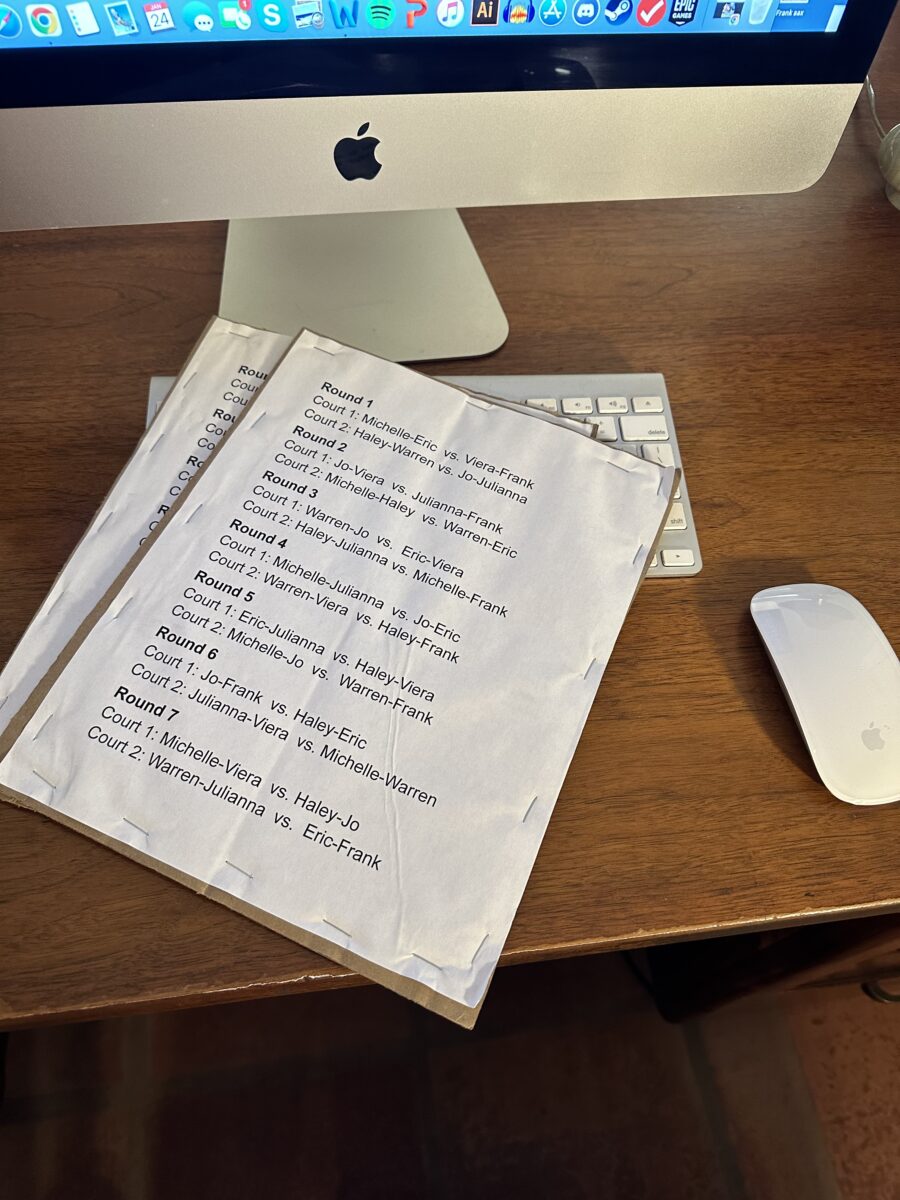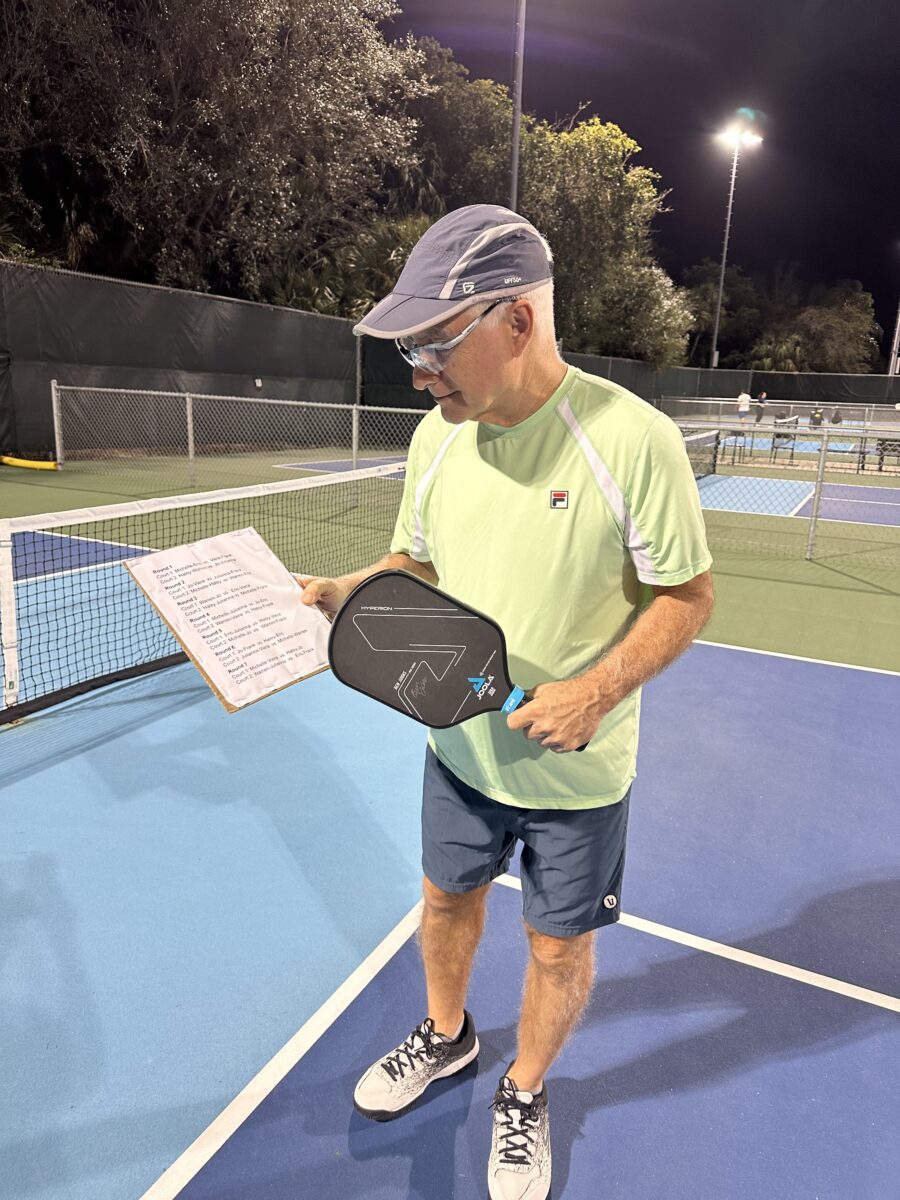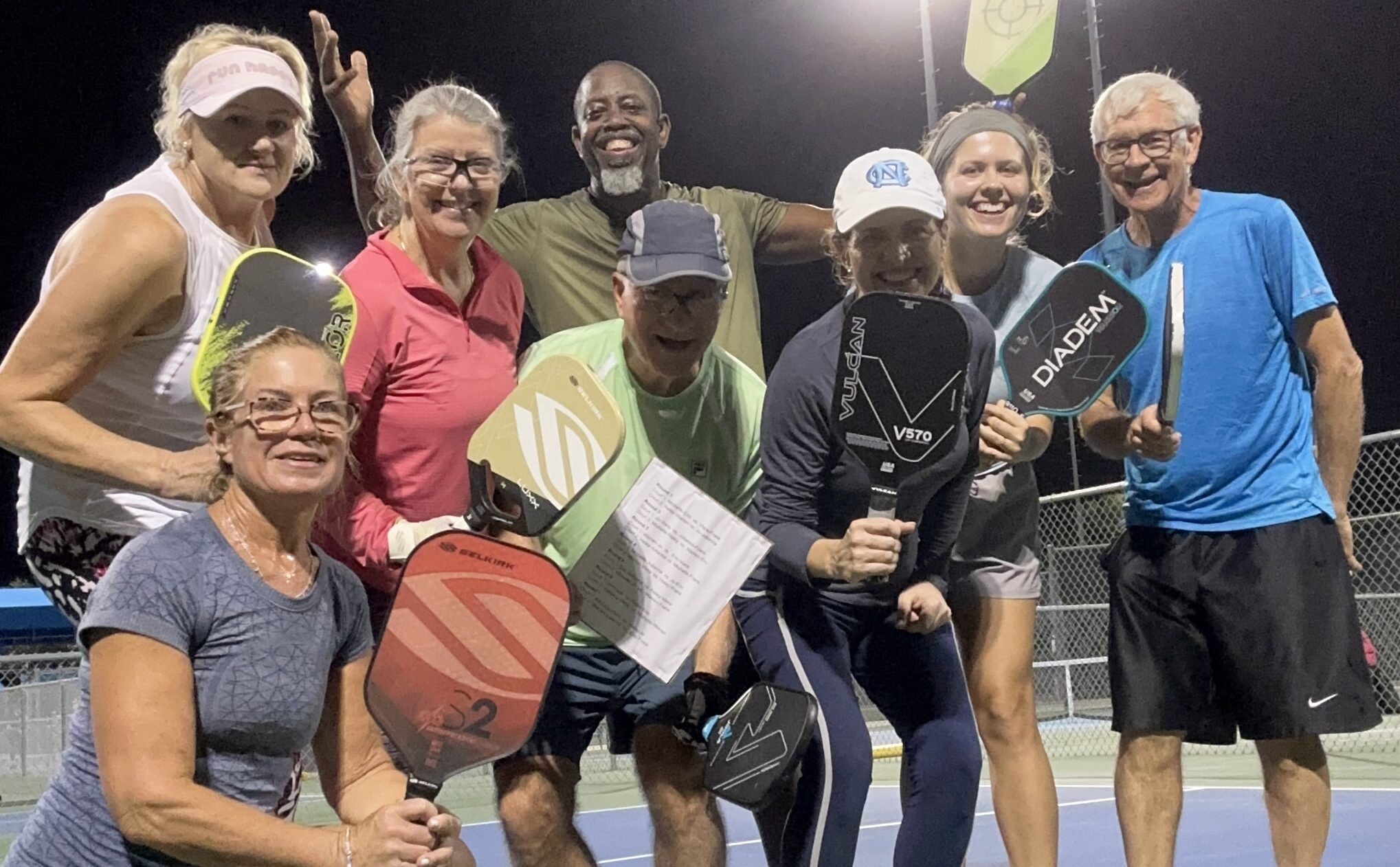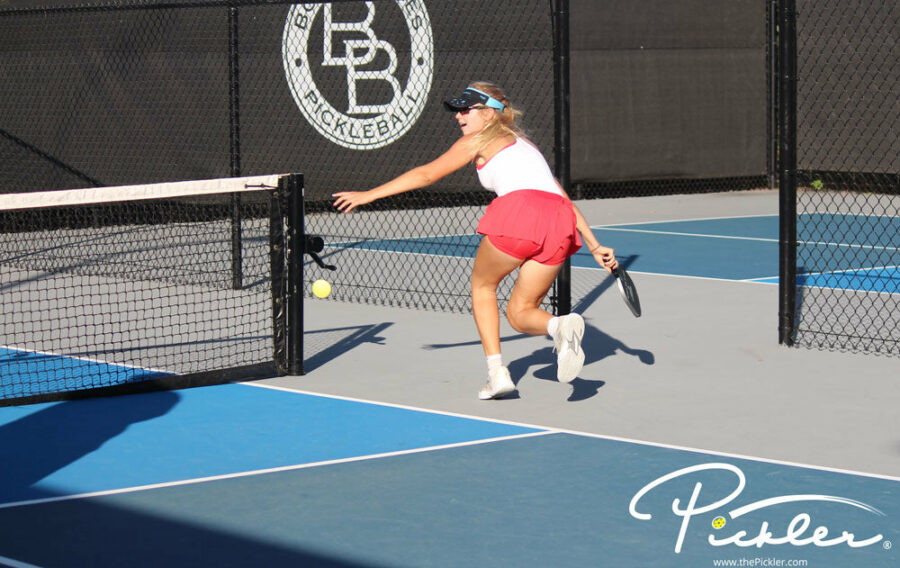We here at Murmurs from the Losers’ Bracket are your full-service consultants on pickleball, both on and off the court.
Today, we’d like to address the delicate verbal dance that goes on if you’re unlucky enough to be the organizer of an informal round-robin tournament with your pickleball friends.
If you haven’t experienced it before, it’s akin to that feeling of anticipation, dread and excitement you had as you considered going with somebody to your first middle-school dance.
Yes, it’s that juvenile.
Sure, in arranging a pickleball round-robin you might be dealing with doctors, accomplished entrepreneurs, people with advanced academic degrees, holders of well-fed 401Ks, and graying adults who are steeped in the wisdom-bestowing opportunities long lives allow.
But trust us, it’s junior-high, baby, all over again.
Egos are going to be revealed. Cliques are going to emerge. White lies are going to sound reasonable. And some of us will not be on our best behavior.
And like that first dance in the distant past, we want to go, but not just with anybody. Should we jump at the easy “yes”, or should we hold out for someone else?
How you make or respond to offers to participate is a nuanced minefield of etiquette. And if you’re organizing a round-robin for a fun session of rec play, you’re going to need more than a spreadsheet to get through this.
You’re going to need to choose your words carefully, and listen even harder as you play the verbal dance that may be necessary.

With that in mind, here’s a guide on how this is done:
***
Interpreting invitations to players
Initial ask: “Can you play Tuesday at 7? I’m getting 12 players together for a three-court round-robin.”
Response No. 1: “Yes, I’d love to. Thanks for including me.”
Translation: This is the response of a pickleball addict who will play with anybody if somebody has an available court. The other players don’t matter.
The person who never asks “Who else is playing?” will play with newbies, 5.0s, Kim Jong Un, people with live COVID infections — basically, anybody with a pulse and a paddle.
Thank heavens for these people.
Response No. 2: “I may be available. I’ll have to check my calendar.”
Translation: I’m giving you a chance right now to tell me who the other players are. If you don’t, I’m assuming there will be people I won’t want to play with, and my calendar will have a conflict.
Response No. 3: “I think I’m going to be busy during that time.”
Translation: I’m already booked for another game.
How to make sure you have enough players without actually making firm invitations
Initial ask: “I may have an opening in a round-robin I’m putting together Tuesday at 7. Would you be available?
Translation: I’m hoping to get other people to play, but if not, you’re an acceptable fallback.
Invitations after cancellations on game day
Invariably, one of the people in your round-robin will cancel hours before you’re supposed to play. This will be a crucial test of your diplomatic skills.
Initial ask: “Sorry for the last-minute notice, but I have an opening in a round-robin I’m putting together tonight at 7. Can you play?”
Response No. 1: “You said, ‘tonight’? As in three hours from now?”
Translation: This person may or may not want to play, but can’t address that until he or she makes you feel guilty for not including him or her on the initial round of invitations.
Response No. 2: “I can let you know by 6:30.”
Translation: This player is so bruised at not being included at first that he or she is trying to sabotage your scheduling.
Response No. 3: Sure. Can my (significant other) play too?
Translation: The price for filling your vacancy will be including a player who is either way above or below the playing abilities of the other players. Oh yeah, and now you’ll have an excess player, which means somebody has to sit out every game.

Special considerations
You may also encounter situations where players are unwilling to play with certain other players due to a playing experience that occurred in the past.
If this is the case, when you are inviting others to fill out the round-robin schedule, you should definitely disclose your invitations to players who do not get along — unless you really need to fill slots.
Then you have to be more cagey. The conversation could go something like this:
Initial ask: “Can you play Tuesday at 7? I’m getting 12 players together for a three-court round-robin.”
Response: Is (insert other player’s name) playing?
Answer No 1: Maybe. I can’t remember. I don’t have the sheet in front of me now.
Translation: Yes, but I really need you to play.
Answer No. 2: “Yes, but I can cut him from the list if you’d like.”
Translation: The offending player has yet to be asked, and if you give me a firm “yes” right now, I will make sure the other player isn’t included.
Answer No. 3: No, I wouldn’t think of asking (the offending player).
Translation: The offending player was already asked and said ‘No.’
Just have fun out there
The people who say this have never organized rec-level round-robins.
As for you, you’ll know how well you did organizing your little event by the way your pickleball friends react to your next invitation to an informal round-robin.
Response No. 1: “Sure. Thanks for asking.”
Translation: You passed.
Response No. 2: “Oh, sorry. I’m doing laundry that night.”
Translation: It’s time to hang up your clipboard and wait to get invited to someone else’s round-robin.
MURMURS FROM THE LOSERS’ BRACKET
Read past editions of Murmurs from the Losers’ Bracket, including:
- Confessions of a Paddle Addict
- The Pilgrims and Pickleball – The Untold Story
- A Baby Boomer Lament
- The Golden Bachelor Courts Pickleball
- Is a Pickleball Escort a thing?!
- Losing with Style
- We Beat Go Fish!
- Taking the First Serve… or Not
- “Sorry” Seems to be the Easiest Word
- Top 10 Signs it’s too Hot to Play Pickleball Outside
- Coming In from the Heat
- The Ozempic Ad
- Ball On Court? Maybe Not
- The PPA, the APP and Monty Python
- Time to Get Help at Bangers Anonymous
- “It’s an Injury Sport”
- A Pickleball Translation Guide
- What’s Your Pickleball Nickname?
- Tennis the Menace
- Is There Such a Thing as “Pickleball Torture”?
- How to Be an Effective Pickleball Snob
- All You Need Is Glove
- The Lesson McDonald’s French Fries Have for Pickleball
- Tunes on the Court
- The Poetry of Empty Courts
- “Head Targeting” Rule Change Not a Brainy Idea
- Getting Beyond “Good Game”
- Why Are Pickleball Trophies Such a Big Deal?
- Stop Messing with the ATP
- When Discussions of Rules Turn Unruly
- A Former Pickleball Addict Speaks Out
- Separating the Drinkers from the Dinkers
- Turning Every Magazine into a Pickleball Magazine
- Zen and the Art of Pickleball Maintenance
- Spirited Pickleball Poetry
- Making Pickleball Less “Devastating” to Amateurs
- Finding Romance on the Pickleball Court: Top 10 Pickup Lines
- Sign of the Times: Pickleball License Plates
- Red Light, Green Light: Playing Traffic Cop on the Court
- The Pickler Limerick Challenge
- The Pickler Limerick Challenge Heats Up
- The Pickler Limerick Challenge Wraps Up
- Pickleball & the $100 Hamburger
- Before We Play, Partner, Please Sign This…
- Pickleball’s Most Powerful Spoken Word
- It’s Been a Hard Day’s Night for Pickleball Skeptics
- Be Kind to Your Local “Paddle Sheriff”
- Is There Such a Thing as Too Many Paddles?
- Silence Is… Not My Style
- “Going Ham” Over Pickleball’s Generational Divide

Frank Cerabino is a long-time columnist for the Palm Beach Post in Florida, a pickleball addict like the rest of us, and a newly published author. Check out Frank’s newly released book, I Dink, Therefore I Am: Coming to Grips with My Pickleball Addiction (available on Amazon and a great read (or gift!) for any pickleball player), for pickleball tips and laughs!





